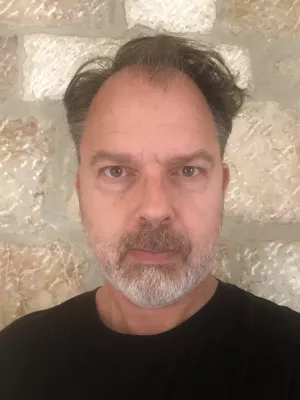
Torsten Janson
Researcher

Bridging Difference, Breaking Boundaries: Innovative Educational Approaches in Beirut. Roundtable Presentation at Middle East Studies Association (MESA) Annual Meeting, New Orleans, US
Author
Summary, in English
This presentation will engage with the issue of educational reform in the Middle East, discussing preliminary findings of a recently initiated research project on community based educational projects in Beirut. Such initiatives will be discussed in relation to national Lebanese educational policies and practices, as well as in relation to international educational programs such as Education for All and Lifelong Learning.
The presentation will focus on the role of independent organizations and individual benefactors, working with vulnerable populations of children, youth and young adults, through innovative educational practices, in response to the socio-political, economical, ethnical and religious tensions and predicaments of contemporary Beirut.
Specific questions to be addressed and discussed at the roundtable do for instance concern the advantages and challenges associated with, on the one hand, informal capacity building and dynamic methods aimed at strengthening self-esteem and dignity in face of socio-economic marginality and, on the other hand, formal educational initiatives aiming at providing disadvantaged individuals access to higher education. What challenges and benefits are associated with such different approaches, and what educational methodologies are appropriate for what circumstances and populations? Based on preliminary results from interviews with and observations among beneficiaries of such informal and formal educational programs, the participants of the roundtable are invited discuss challenges associated with varying pedagogical strategies, as well as with the assessment of outcomes of such educational initiatives.
Another, more dynamic but equally important topic for discussion suggested by the results at hand, concerns issues of identity and self-image, such as the beneficiaries’ experiences of and strategies for handling class mobility vis-à-vis community peers and family. For example, are the obviously positive experiences of education and prospects for upward social mobility also associated with emotional tensions, sentiments of guilt and disloyalty? If so, how are the side effects of upward mobility handled by the youths, and what support could be offered to meet them?
The presentation will focus on the role of independent organizations and individual benefactors, working with vulnerable populations of children, youth and young adults, through innovative educational practices, in response to the socio-political, economical, ethnical and religious tensions and predicaments of contemporary Beirut.
Specific questions to be addressed and discussed at the roundtable do for instance concern the advantages and challenges associated with, on the one hand, informal capacity building and dynamic methods aimed at strengthening self-esteem and dignity in face of socio-economic marginality and, on the other hand, formal educational initiatives aiming at providing disadvantaged individuals access to higher education. What challenges and benefits are associated with such different approaches, and what educational methodologies are appropriate for what circumstances and populations? Based on preliminary results from interviews with and observations among beneficiaries of such informal and formal educational programs, the participants of the roundtable are invited discuss challenges associated with varying pedagogical strategies, as well as with the assessment of outcomes of such educational initiatives.
Another, more dynamic but equally important topic for discussion suggested by the results at hand, concerns issues of identity and self-image, such as the beneficiaries’ experiences of and strategies for handling class mobility vis-à-vis community peers and family. For example, are the obviously positive experiences of education and prospects for upward social mobility also associated with emotional tensions, sentiments of guilt and disloyalty? If so, how are the side effects of upward mobility handled by the youths, and what support could be offered to meet them?
Department/s
- Centre for Advanced Middle Eastern Studies (CMES)
- MECW: The Middle East in the Contemporary World
Publishing year
2013
Language
English
Document type
Conference paper
Status
Published

